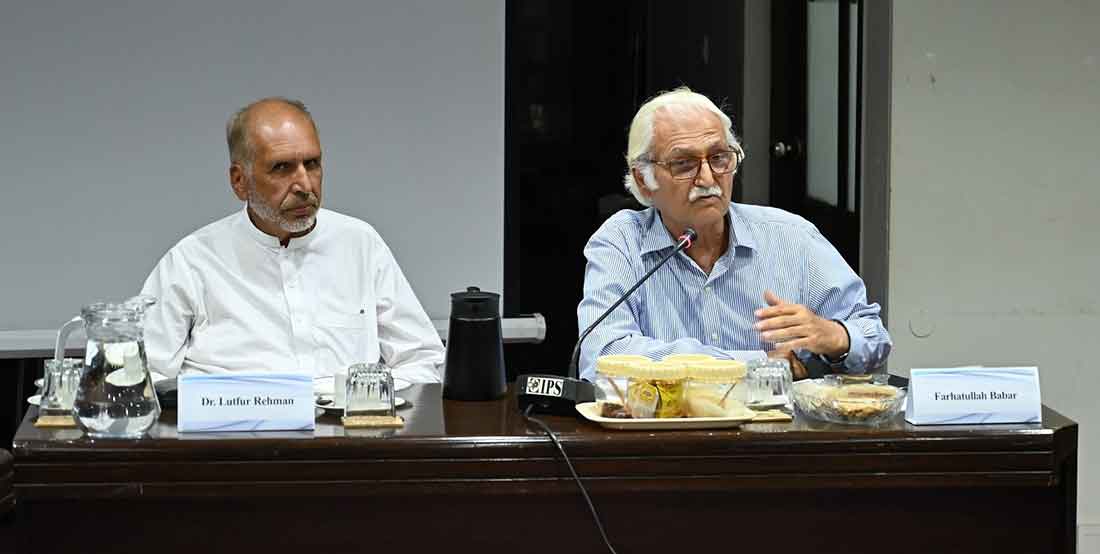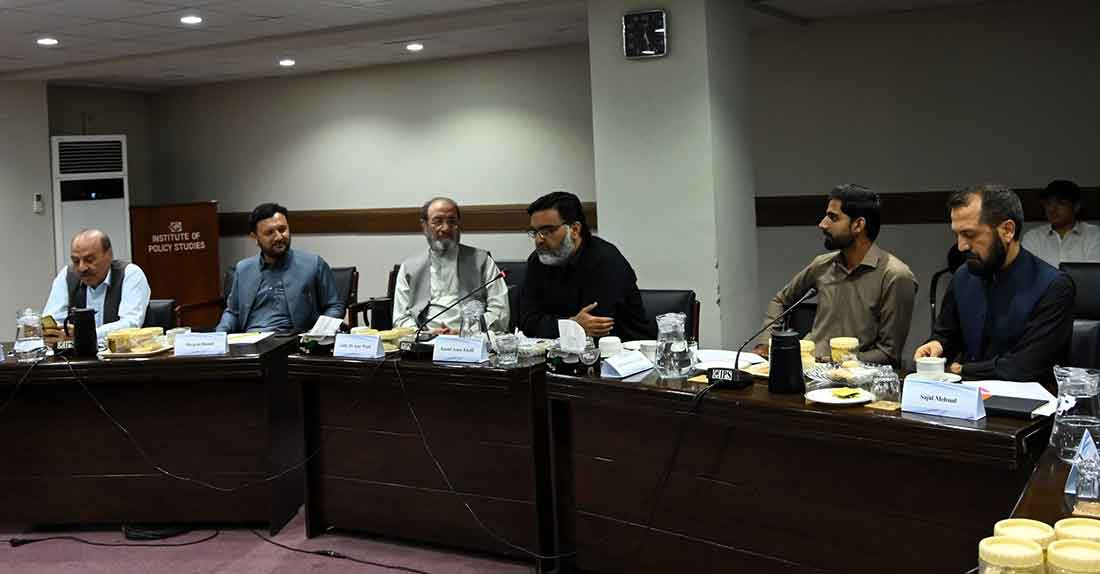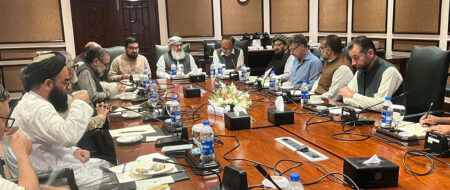‘National Unity and Ethnic Pluralism’
Governance-centered approach essential for addressing Pakistan’s ethnic and regional challenges
Addressing Pakistan’s ethnic and regional challenges requires a thorough understanding of grievances rooted in governance issues rather than viewing them through an identity-based lens. Constructive and lasting solutions depend on a commitment to equity, empowerment, and transparent governance that extends across all regions and communities.
By focusing on socioeconomic and political fairness, Pakistan can foster greater unity and stability, bridging divides and ensuring that all citizens feel represented and valued in the nation’s progress. Only through a genuine dedication to inclusive, transparent policymaking can these longstanding grievances be effectively resolved, paving the way for sustained national cohesion.
This was observed during a consultative session on ‘National Unity and Ethnic Pluralism’ held at the Institute of Policy Studies (IPS), Islamabad, on October 25, 2024. The session aimed to discuss challenges, grievances, and pathways to strengthen societal cohesion across diverse communities, with a particular focus on issues facing Khyber Pakhtunkhwa (KP) and former FATA regions.
The session was addressed by Khalid Rahman, chairman IPS, Professor Dr Qibla Ayaz, ad-hoc member of the Shariat Appellate Bench of the Supreme Court, Farhatullah Babar, PPP leader and former senator, Prof Dr Fakhr-ul-Islam, former director, Pakistan Study Centre, University of Peshawar, Ambassador (r) Ayaz Wazir, Dr Lutfur Rehman, an expert on FATA affairs, Dr Khurram Iqbal, associate professor, National Defense University (NDU), Islamabad, Dr Ashraf Ali, former director FATA Research Center, Salman Javed, director, Pak Afghan Youth Forum, and other distinguished academics, former officials, and policy experts.

The discussion emphasized that internal and external forces have increasingly exploited Pakistan’s ethnic and regional differences, intensifying fault lines within the nation. Participants noted that while there is enough space for cooperation among stakeholders through various means like jirga, constructive solutions require a deeper understanding of the grievances rooted in governance issues rather than identity-based conflicts.
The panel highlighted that KP faces unique challenges in political representation, economic development, and local governance, particularly following the FATA merger. The merger, initially seen as a hope for development and improved governance, has yet to yield the anticipated benefits, they observed. Effective resource allocation and targeted development funding remain essential to address local frustrations and foster sustainable growth, they noted.
Speakers emphasized that long-term peace and stability depend on empowering local government bodies to play a central role in civil administration and development. They highlighted that addressing longstanding issues of political, economic, and social marginalization is crucial, advocating for equal representation, economic opportunities, and political empowerment across regions. Such measures were deemed essential to prevent further alienation of marginalized communities, with panelists cautioning that unresolved grievances could fuel disillusionment and social unrest.
The discussion also underscored the importance of reassessing the role of various state actors in addressing regional issues, recommending a holistic, solution-oriented approach that takes into account social, political, and economic factors. Structural challenges, including unemployment, limited educational opportunities, and heavy reliance on informal trade, were identified as pressing areas for intervention. Addressing these issues was seen as key to reducing vulnerabilities and fostering a more stable, inclusive environment for progress.
The session concluded with an emphasis on the importance of inclusive national dialogue and consistent policies that prioritize the well-being and rights of all citizens. Sustained efforts to reinforce the social contract and restore trust between communities and the state is crucial. This dialogue is essential to counter narratives that threaten national unity and to build a cohesive society that respects and celebrates diversity as a strength rather than a point of division.




